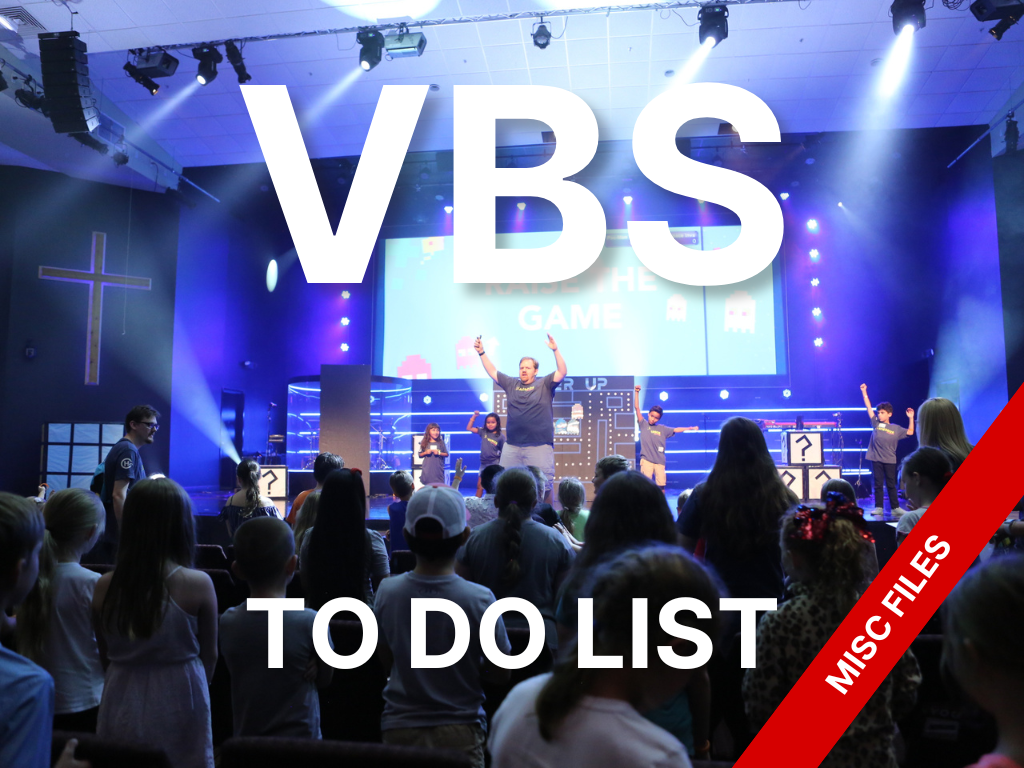How to Turn Service Fails to Success
Photo by Guille Álvarez on Unsplash
The big weekend is finally here. You’ve been working for months getting all the people, supplies, and logistics together. You’ve invited tons of people, prayed for God’s favor, crossed that t and dotted that i. You’re ready for the big day. Or you think you are.
Sometime during the event something goes wrong. Something always does. One of my favorite quotes is from General Colin Powell who said
“No battle plan survives contact with the enemy.”
No, church isn’t a battlefield in the physical sense, but we can plan everything out perfectly and still have to adjust to reality. The check-in system will fail, your projector lightbulb will burn out, your volunteers are suddenly sick and can’t make it.
One Christmas three hours before service, some squirrels chewed through the wiring at our church and knocked out a third of the power. We were doing a movie theme and prepared movie popcorn and clips from a popular Christmas movie. Because of the brown out, the popcorn machine, projectors, and A/C were out. The A/C going out may not be that big of deal for you, but I was in Alabama. It’s still warm in December. As a result, we had to scrap a bunch of our plans and do a more traditional, acoustic driven Christmas service. It was still special, but we were disappointed all those plans never saw the light of day.
Maybe you have your own stories of failure. As of this writing Christmas Eve is in two days. I hope and pray you don’t have a new disaster story this weekend, but Murphy’s Law is always true.
“Anything that can go wrong will go wrong.”
The only way to counteract this law is to be prepared for the worst and hope for the best. Here’s three things I do.
1. Have a backup plan
If you use digital check-in in your ministry, you know it’s a relative certainty that the system will fail at some point. Your internet will go down, the printers won’t connect, the laptop charging cable is lost. Kids and parents are coming and you’re dead in the water.
The best thing you can do is to have a back up plan.
So, when you’re planning for your service or event, think about the weak points. What happens if different pieces of technology fail? What do you do if it rains? There’s a fire? Someone goes missing? You can doom spiral pretty quickly and collapse into a puddle of anxiety and despair. But try your best not to and plan for the worst. Most likely you won’t have to use the plan, but it’s better to have it and not need it than the alternative.
I’d rather have a bunch of blank labels and sharpies collecting dust under my check-in area, than discover the printers aren’t working and have to scramble to find the right supplies. The Mega-church I served in had a huge building. The office was literally a quarter mile round trip. Going all the way there and back was not really an option.
If you’ve already thought about the worst that can happen and have plans and supplies in place before the event is ready to begin, you’ll be much more able to roll with the punches than crash and burn. If details or worse case scenario thinking isn’t your thing, find some people in your church that are and ask for their help. Most likely, they’ve already thought about it and have some suggestions on what you can.
2. Assess what went wrong
You can plan for a lot of things, but you can’t plan for everything. You’re not God. You don’t know the future. So, when something bad happens, whether you were prepared or not, sit down and figure out what went wrong. Bring other people into the conversation who were there to give you a different perspective. If you never learn from your mistakes, you’re doomed to repeat them.
At my second Halloween outreach we had 3 times more people than we expected. We stopped traffic and filled up the entire parking lot. I had very basic parking team in place as a nice to have, but we weren’t ready for the crowd. Also, I had no idea there was a problem. Even though I was running the event, my focus was on other things and my leaders did the best they could. In the after action meeting, the parking team brought their problems to my attention and offered solutions for next time.
After every event, and even every service, you need to have an after-action meeting to talk about the good, the bad, and the ugly. Don’t give yourself a 10 because then you have no where to go. There’s always something you can improve upon.
To help guide the conversation, I use these 5 questions to evaluate my events. When we get to the bad parts, we don’t just talk about what went wrong, but why it went wrong, what we need to do to fix it (if anything). Then we put a plan in place to make sure it doesn’t happen again.
3. Apologize
So far, I’ve talked about problems that affected the service as a whole. The user experience may not have been up to par, but no one was hurt. However, sometimes the failure wasn’t technical or programmatic. Sometimes, things happen that cause physical or emotional harm. It could be something you said or did or you had nothing to do with it. But because it happened in the area you oversee, the responsibility lies with you.
A few years back, I got an angry phone call from a father telling me that his son was beat up in our game room. He said his son cried for help, but no one cared for him and the volunteers in the room did nothing to stop it.
This was the first time I heard about it, so I was as shocked as he was. I immediately apologized and told him I would find out what happened and report back promising it would never happen again. Then I went and told my pastor what happened as far as I knew and started to investigate. Your pastor never wants to be surprised. If something bad happens, let them know about it as soon as you can.
Turns out, the volunteers in the room didn’t see the altercation. One was playing with other students and missed it. The other was on her phone. I had to remind everyone especially those volunteers about our no phone policy while serving and then apologize to the dad again and outline my plan to make sure this doesn’t happen again. Eventually, I added cameras for extra safety and security.
Even if the problem wasn’t your fault, you need to apologize for what happened. It’s your responsibility as the leader to watch over the people in your care. Even if you weren’t anywhere near the infraction, you’ve put trusted people there to make sure it doesn’t happen, therefore, you have to take the blame. It’s part of being a servant leader. Jesus did the same for us when he died on the cross. He said, “Greater love has no one than this: to lay down one’s life for one’s friends.” John 15:13
Thankfully, most of the things that go wrong in your ministry aren’t a matter of life or death. But it’s still your responsibility.
Bad things will happen. Something will go wrong. When they do, I remember the paradox of every service matters and no service matters. There’s always next week. Pick yourself, dust yourself off, learn from your mistakes, and keep moving forward.




Your volunteers are the greatest asset to your VBS. You need to give them all the tools to be successful. With this template, you’ll have all the tools you need to show them what to expect and what’s expected.